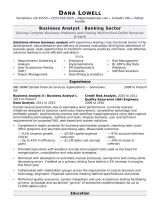What is business plan market analysis?
A business plan market analysis is a crucial section of a business plan that provides a comprehensive overview and assessment of the market in which a business operates or plans to enter. It involves gathering and analyzing data and information about the industry, target market, competition, and the broader economic environment. The primary goals of a market analysis within a business plan are to:
Understand the Market: Gain a deep understanding of the industry and market dynamics, including its size, growth potential, trends, and challenges.
Identify Opportunities: Identify opportunities for the business to succeed, grow, and capture market share within its target market.
Assess Risks: Identify potential risks and threats that could impact the business, such as competition, market saturation, or economic downturns.
Support Business Decisions: Provide valuable insights to inform key business decisions, including pricing strategies, marketing plans, and market entry or expansion strategies.
Attract Investors and Lenders: For startups and businesses seeking external funding, a well-researched and data-backed market analysis can be a persuasive tool to attract investors and lenders.
Here are the key components typically included in a business plan market analysis:
Industry Overview: Provide an overview of the industry, including its current state, growth trends, and key drivers. Explain how the industry operates and any regulations that may affect it.
Target Market: Define and describe the specific market segment(s) your business is targeting. Include demographics, psychographics, and any other relevant characteristics of your ideal customers.
Market Size and Growth: Estimate the size of your target market in terms of potential customers and market value. Discuss the expected growth rate of the market.
Market Needs: Identify the needs, problems, or pain points of your target customers that your product or service addresses. Explain why your offering is valuable.
Market Trends: Discuss current and emerging trends in the market, such as technological advancements, consumer preferences, or shifts in behavior.
Competitive Analysis: Analyze your competitors, including their strengths, weaknesses, market share, and strategies. Explain how your business differentiates itself and competes effectively.
SWOT Analysis: Conduct a SWOT (Strengths, Weaknesses, Opportunities, Threats) analysis to assess your business's internal strengths and weaknesses as well as external opportunities and threats in the market.
Barriers to Entry: Describe any barriers that might hinder new competitors from entering the market, such as high capital requirements, regulatory hurdles, or strong brand loyalty.
Customer Acquisition Strategy: Outline your plan for acquiring and retaining customers, including your marketing and sales strategies.
Pricing Strategy: Explain how you will price your product or service in relation to competitors and justify your pricing strategy based on market research.
Market Share Projections: Provide projections of the market share you aim to capture over a specified period, along with strategies for achieving these goals.
Market Segmentation: If applicable, segment your target market into smaller, distinct groups and explain how you plan to address the unique needs of each segment.
Exit Strategy: For investors or potential partners, discuss your exit strategy, whether it's selling the business, going public, or other options.
A well-prepared market analysis demonstrates that you have thoroughly researched your market and have a clear understanding of how your business fits into it. It provides the foundation for the rest of your business plan, helping you make informed decisions and set realistic goals for your business's success.
The Role of Market Analysis in a Business Plan
A market analysis is an essential part of any business plan. It provides a comprehensive overview of the market in which the business will operate, including the target market, the competitive landscape, and the industry trends.
A market analysis is important for a number of reasons. First, it helps businesses to understand their target market and the needs of that market. This information is essential for developing products and services that will meet the needs of customers.
Second, a market analysis helps businesses to identify their competitors and to assess their strengths and weaknesses. This information can be used to develop competitive strategies and to differentiate the business from its competitors.
Third, a market analysis helps businesses to understand the industry trends that are likely to impact their business. This information can be used to develop long-term strategies and to ensure that the business is prepared for change.
Incorporating Market Research into Your Business Plan
Market research is the process of gathering and analyzing information about a market. It is important to incorporate market research into your business plan in order to develop a comprehensive and accurate understanding of the market.
There are a number of different ways to conduct market research. Some common methods include:
- Primary research: This type of research involves collecting data directly from the target market. This can be done through surveys, interviews, or focus groups.
- Secondary research: This type of research involves collecting data from existing sources, such as industry reports, government statistics, and academic journals.
Once you have collected data, you need to analyze it to identify trends and patterns. This information can then be used to write your market analysis section of your business plan.
Demonstrating Market Viability in Your Business Plan
Your market analysis should demonstrate that there is a viable market for your product or service. This means that you need to show that there is a large enough market opportunity and that your target customers are willing and able to pay for your product or service.
You can demonstrate market viability by providing the following information in your market analysis:
- Market size and growth potential: Show how large the market is and how it is expected to grow in the future.
- Target market analysis: Provide a detailed description of your target market, including their needs, wants, and demographics.
- Competitive analysis: Identify your competitors and assess their strengths and weaknesses.
- Industry trends: Discuss the industry trends that are likely to impact your business.
By providing this information in your market analysis, you can demonstrate to potential investors and lenders that your business has a good chance of success.
Here are some additional tips for writing a strong market analysis:
- Be specific: Don't just say that your target market is large. Provide specific data and statistics to support your claims.
- Be realistic: Don't overestimate the size of your market or the willingness of customers to pay for your product or service.
- Be objective: Don't let your personal opinions or biases influence your market analysis.
- Be thorough: Make sure to cover all of the important aspects of the market, including the target market, the competitive landscape, and the industry trends.
By following these tips, you can write a market analysis that will help you to develop a successful business.












